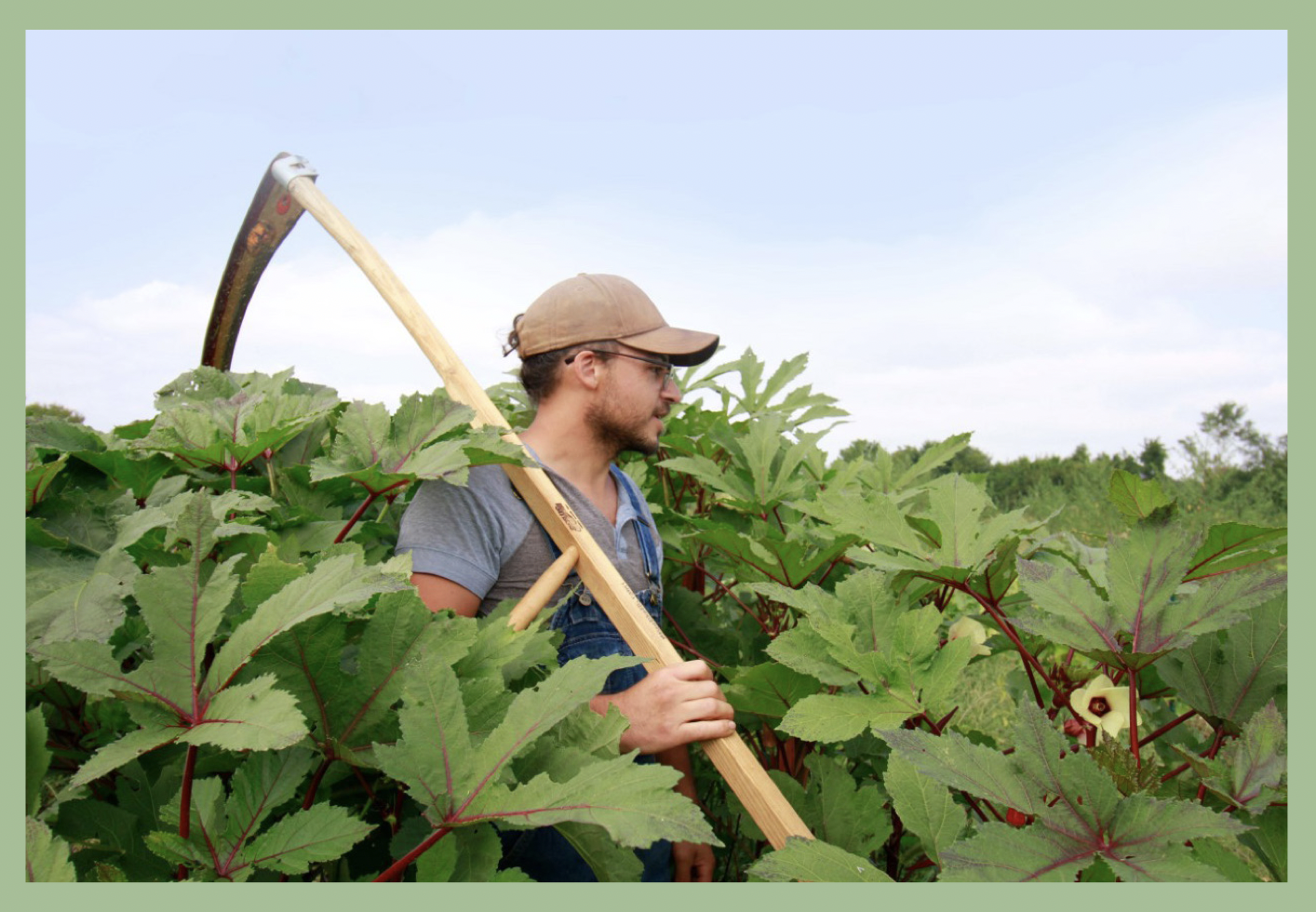Condensed 5 minute version of Food as a Public Work:
LISTEN HERE: Poor Proles Almanac Podcast: Fossil-Free Farming & Food as a Public Work with Maseualkualli Farms
Longer form podcast with background on the farm including some of the economic workings of Food as a Public Work!
LISTEN HERE: 🍊x🍑 Podcast (Lawrence Public Library): How to be an advocate!
Longest, laughter filled joy riding and farm fun facting podcast with info on Food as a Public Work rolling in around 33:13 :)
READ HERE: Farm-to-table for free: The Lawrence farmer and activist making food a public work by Jordan Winter (The Lawrence Times)
Photo Credit: Connie Fiorella Fitzpatrick featured in Kansas Rural Center Rural Papers Spring/Summer 2022 Op-ed by me on Food as a Public Work can be found below!
From: Douglas County Food Policy Council
Subject: Support for The Peoples’ Century Farm
Date: September 15, 2022
At our June 2022 monthly council meeting, Pantaleon Florez of Maseualkualli Farm shared to the members information about his endeavor to create The Peoples’ Century Farm, which would institute food as a public work in Douglas County. DCFPC members extend our support to elevate this effort to the attention of the Douglas County Administration and Commissioners.
We wish to express our belief that The Peoples’ Century Farm has the potential to advance goals in the Douglas County Food System Plan in many ways, for instance increasing food production on public land (3.2.1)*. Also, there is the potential for increasing equity in land access and economic development opportunities for BIPOC farmers, in addition to increasing food security in our County. Such a program could complement existing farming operations and practices, and co-exist with government services such as SNAP and WIC in addressing food access and food security. Further, promoting environmentally friendly jobs that support a culture that fosters a robust agricultural sector and supports the emerging local and regional food systems is explicitly stated in Plan 2040.
Land Access
The Peoples’ Century Farm could begin to alleviate a history of explicit and de facto restrictions on land access to BIPOC farmers and provide targeted small business support and infrastructure to benefit immigrant, low-income residents and people of color (1.1.6). Roughly 2% of Douglas County producers are non-white. Statewide, less than one half of one percent of farmland is stewarded by BIPOC. Targeting public land for BIPOC access will improve access to farming opportunities that wouldn’t require amassing wealth to participate (2.4.1), while also addressing the privation of land from Indigenous populations, or the flooding of historically Black rural communities to construct Clinton Reservoir (4.1.2).
Economic Development
The project seeks to support both local farmers and meet critical food needs throughout the county by utilizing current economic development strategies in this innovative practice (1.1.7). In addition, cultivating a professional cohort of county-supported, fairly-compensated farmers (1.4.3) on public land would create an inventory of skilled farmers that could develop new farmers who are well-prepared to take opportunities to continue the work of farmers aging out of local agribusiness (1.4.1 and 2.4.1).
Food Security
The pandemic exacerbated food insecurity in Douglas County, with any decreases in the food insecurity rate over the last several years reversed. The Peoples’ Century Farm would add additional resources, in conjunction with existing resources such as food banks, SNAP and WIC, to help increase food access and decrease food insecurity in our County (4.1.6) thus helping to continue to build, support, and sustain healthy food environments, and also acts upon one of the four priority issues outlined in the Community Health Plan, “Food Security and Healthy Built Environment” (3.3.1 and 3.3.2).
The DCFPC commends Pantaleon Florez and his work in developing a framework for The Peoples’ Century Farm, which has the potential to become an agricultural model not only for Douglas County but potentially for other communities across the country in helping broaden land access and create economic development opportunities to BIPOC farmers, as well as assist in increasing food security. The Council looks forward to furthering conversations with County Administration and Commissioners on this noble endeavor.
Sincerely,
Tyler J. Lindquist
Chair, Douglas County Food Policy Council
*Numbers in parentheses relate to the goals/objectives/policies in the Food System Plan which can be found at https://www.douglascountyks.org/fpc/food-system-plan
It’s time to organize and share our stories!
Lawrence is set to spend $436 million on the 2023 budget. Just 0.5% of that could launch year one of Food as a Public Work needing only 0.27% in each year after.
What would people get in return?
SOCIAL:
$5-6 million in free produce and prepared foods every year in perpetuity.
Increased local food security for current need and for disaster situations.
Increase in locally produced, culturally relevant foods.
CLIMATE:
Reduced carbon emissions via sustainable agriculture & localized food production.
Perpetually protected, cubically owned agricultural lands and watersheds.
Sustainable agriculture research and educational opportunities for the public.
ECONOMIC:
16 sustainable agriculture jobs implemented utilizing targeted universalism.
Below market rate usage of commercial kitchen space (Restaurant Incubator).
Below market rate usage of processing facilities (Processing Incubator).







